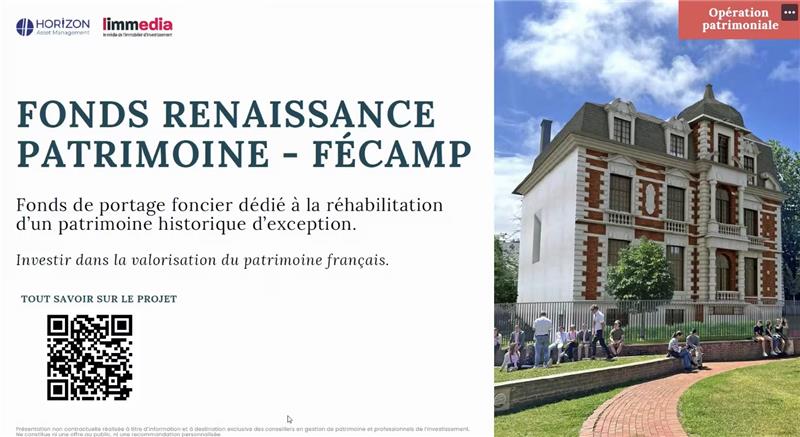REAL ESTATE, A "STRUCTURAL NEED" THAT RESISTS INFLATION

To combat inflation and an uncertain macroeconomic environment, Horizon AM's teams have adopted a strategy aimed at concentrating on operations that can withstand these uncertainties. Mehdi Gaiji, Chairman of Horizon AM, explains the foundations and objectives of this strategy.
Against a backdrop of spiking inflation, rising interest rates and war in Ukraine, is the residential property market proving resilient despite everything?
Mehdi Gaiji: When it comes to real estate, the first thing to look at is the psychology of the players and producers. It's a question of trust. Those who produce real estate know that there is uncertainty, particularly when it comes to construction costs, which have been rising for over a year and a half. There is also inflation, to which we must add the shock of post-covid supplies. And now there is the war in Ukraine. We are witnessing a shock to raw materials and energy in general, which is generating uncertainty. Naturally, this is having an impact on property players. They are having to contend with shortages of certain materials and with building sites coming to a standstill. All this has an impact on producer confidence, which, given the general context, is a little lower at the moment.
In the short term, they are a little less serene. But despite everything, there is a response from the government and the public authorities that is enabling players in the property sector to adapt to this very particular context. This applies in particular to all aspects of the review clauses.
On the buyers' side, however, there has been no significant change. This is particularly the case for bulk buyers of private residential property. Uncertainty, on the other hand, is more of a concern for individual buyers, who are encountering difficulties related either to the wear-and-tear rate or to the granting of their credit as a result of the tightening of lending conditions by the HCSF. Property buyers are somewhat unsettled at the moment. However, it is important to be wary of short-term effects and cyclical tensions. It's important to put the situation into perspective, to put these short-term jolts in sociological behaviour in the act of buying into perspective.
The important thing to remember is that property remains a good bulwark against inflation, because it meets a structural need. The fundamentals that regulate the act of production and the act of buying are still there.
What are the concrete consequences of the war in Ukraine for the property market in France?
Mehdi Gaiji: The war in Ukraine has had little impact on the property market in France. It's true that the supply chain has gone into a bit of a tailspin over the last few weeks, but that's had a very relative impact. It would be Russia, as an oil and gas producer, that could have more of an impact on the property market, because the main issue here is materials. We're seeing this in particular with the supply of tiles. But it's not directly linked to Ukraine, it's linked above all to the problems of means of supply.
What strategy have you decided to develop to counter this unstable macro-economic environment?
Mehdi Gaiji: At Horizon AM, we produce savings solutions for individuals and institutions to finance housing. Our aim is to focus on real estate transactions where we can have pricing power over the sale price (where we can decide on the sale price). This is an important strategy for us, and for the players we work with, because it means looking for locations that allow us to do this.
We have set up stock-picking strategies so that we can choose operations on which we can list our prices on the selling prices. It is also for this reason that we have started to dispose of certain operations (under 2,000 m2). We are arbitraging, underweighting certain activities and concentrating on others that are resilient to inflation. This is particularly true of nurseries, coliving projects, nursing homes and property dismemberment.These operations offer the prospect of resilience in an inflationary environment. This strategy enables us to offer savings solutions tailored to the context by focusing on themes that are resilient in this particular environment.




